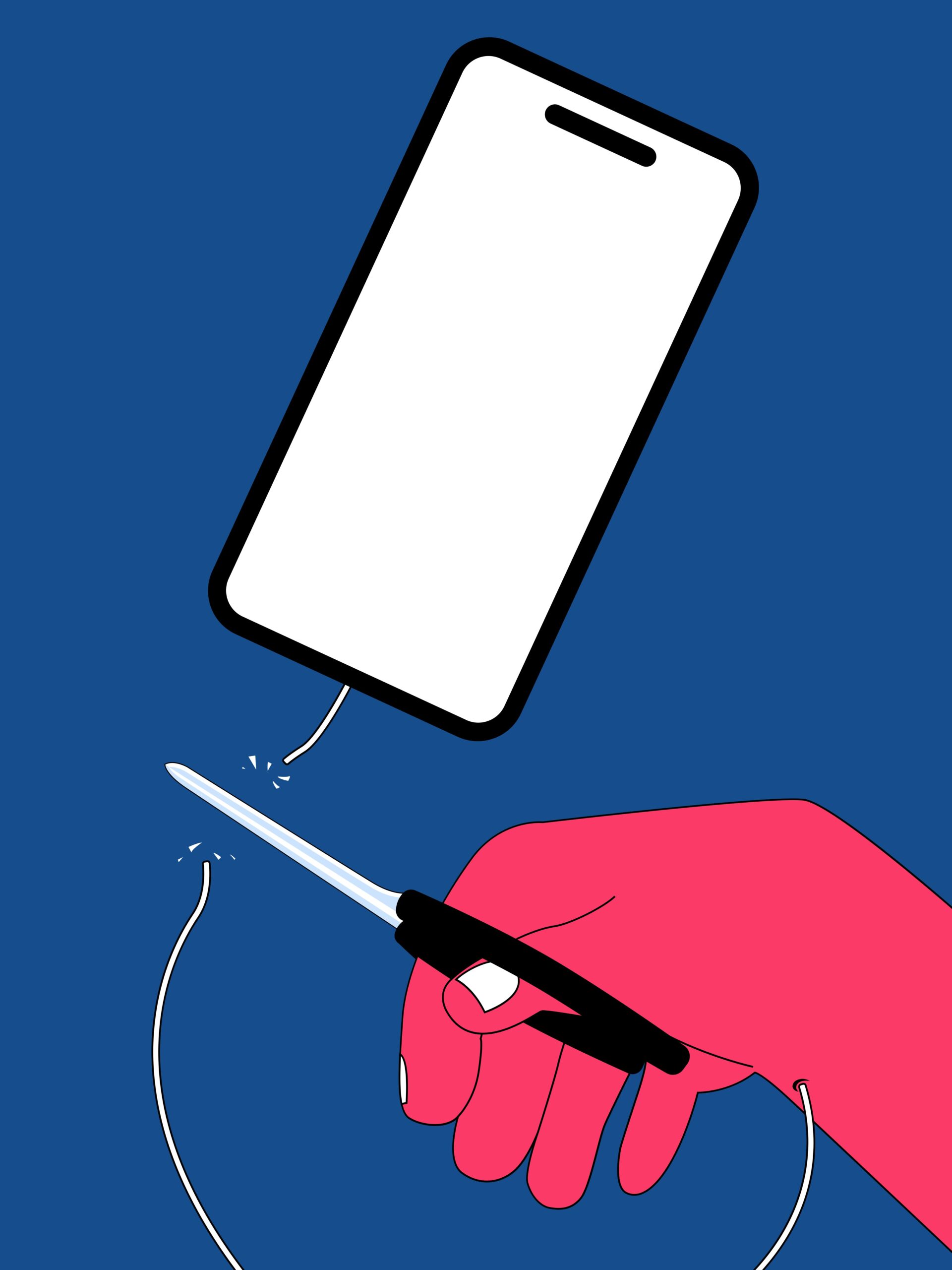Before the read
Because for many, “out of office” no longer means unreachable—and that’s taking a toll on mental health.
It’s a growing legal movement that gives workers the right to log off—literally—and some countries are already adopting it.
Boundaries are a big first step, but lasting change may require laws, leadership, and cultural shifts in how we work.
Out-of-office messages used to mean something. You’d create a polite note about being away for some time, mention to whom urgent matters could be directed, and confidently leave work knowing that you’d deal with pending assignments when you got back. Absence from work used to mean unavailability. However, living and working in today’s hyper-connected world means blurred lines between free time and work time, a perpetual urgency attached to every matter, and reduced impact of the phrase “out of office,” since you can work anywhere.

For most workers, especially those working remotely and as freelancers, digital burnout is a significant concern. In today’s working world, free time is a vague concept, and boundaries between work and personal life barely exist.
Remote Work: A Double-Edged Sword
A lasting effect of COVID-19 on global work culture was that remote work became mainstream. Around the world, remote work was seen as a solution, providing the ability to work from anywhere, at your convenience.
In many ways, remote work is truly the gift that keeps on giving. Its advantages are clear and undeniable—but they have come at a cost. The fact that we can log in and work from anywhere also means we’re never fully logged out. Checking Slack at dinner, messages on the office group during weekends, and email notifications that override do-not-disturb settings have become a cultural norm. There’s barely any difference between on and off days, weekdays and weekends, and work days and vacation days.
Everyone is scared that they won’t be seen as ambitious enough, and opportunities will pass them by if they take their foot off the pedal for just one second. The effect is a culture where no boundaries between work and personal life exist, and an altogether burnt-out workforce.
If you’re a remote freelancer like me, and from a country with a not-so-polished reputation when it comes to remote work, constant availability is more than convenience; it’s survival. Being online, responsive, and reachable is one of the few ways I can signal legitimacy to current and potential clients, keeping them confident in me. However, this also means notifications at night due to time zone differences and practically zero downtime. As I tell my friends when they ask me about my free time, I’m never free. My work period is 24/7.

The irony of the remote work situation is that relaxation outlets are themselves becoming extensions of work. Hotels now advertise meeting spaces and fast internet, and social media has become a personal marketing project. The “working professional vacation aesthetic” boards on Pinterest are replete with pictures of laptops overlooking the ocean, notepads swinging in hammocks, and laptop chargers next to cocktails. Social media posts have become ways to share professional updates and keep up with work-related news, even on the more “casual” platforms. For us workers, the cycle never ends.
It’s easy to assume that the solution would be to turn off the devices or take time off and stick to the plan, but there are many cultural and economic nuances in this conversation. In many professions and industries, being busy is a sign of value. If you’re not busy, it’s because nobody needs you enough to hand you a task. This leaves workers stuck between proving value at the expense of rest or sacrificing career progress for a balanced life. Many are scared that they won’t be seen as ambitious enough, and opportunities will pass them by if they take their foot off the pedal for just one second. The effect is a culture where no boundaries exist between work and personal life, and an altogether burnt-out workforce.

Additionally, the hyper-competitive market creates a need for workers to stand out by all means necessary. If you’re on a team or in a market where people take work calls at midnight, being unreachable can appear unserious or unprofessional, leading to lost jobs and opportunities.
The Cost: Digital Burnout
Digital burnout has been described as a specific type of emotional, mental, or even physical exhaustion triggered by the prolonged use of digital devices. According to a 2019 Workplace Productivity Report, over half of the office professionals surveyed suffered from digital overload. In 2019, the World Health Organization officially recognized “burnout” as a syndrome resulting from chronic workplace stress that has not been successfully managed. Some symptoms of digital burnout are reduced attention span, physical fatigue, loss of motivation, apathy, and reduced productivity.
Cultural Problems, Cultural Solutions: The Right to Disconnect
The solution to a problem that runs deep and affects very sensitive areas of people’s lives must go beyond the superficial. Measures to combat the rise of digital burnout and enforce downtime periods for workers must start with the very system of work. This is why “right to disconnect” legislation is a welcome development that should be adopted by more countries.
The right to disconnect generally permits employees to refuse to read, monitor, or respond to work-related contact or attempted contact after working hours, except that such refusal would be unreasonable. “Contact” here could be by employers, colleagues, or even third parties like clients and suppliers. This means that even if work-related messages are sent after office hours, employees will have the right to refuse reading or responding to them unless the refusal is unreasonable, such as in genuine emergencies.
Interestingly, countries that provide a relatively high number of remote workers, such as India, Nigeria, and the Philippines, currently have no legislation on the subject. Also, there are no federal laws protecting this right in Canada, the United States, and the United Kingdom, while the subject is under consideration in Austria, Denmark, and the Netherlands.
Recently, Australia passed a law guaranteeing the right to disconnect for employees, and Belgium did the same in 2022. Other countries, including Argentina, Brazil, Kazakhstan, Italy, France, Spain, Ukraine, Mexico, Peru, Chile, Cyprus, and Greece, also have similar legislation. Interestingly, countries that provide a relatively high number of remote workers, such as India, Nigeria, and the Philippines, currently have little to no legislation on the subject. Also, there are no federal laws protecting this right in Canada, the United States, and the United Kingdom, while the subject is under consideration in Austria, Denmark, and the Netherlands.

While this legislation is clearly not universal, it is a step in the right direction in protecting workers’ rights. It sends a clear signal that constant availability is unsustainable. Other practices that workers can adopt are setting clear expectations with clients and employers, differentiating devices (or accounts on the same device), and engaging in more offline activities.
Out of Office, and Out of Reach
If there’s anything we learnt from the pandemic, it’s that work will expand to fill available spaces. So as a worker, it’s up to you to carve out work-proof areas by creating and enforcing boundaries.
If we’re never out of reach, we can never truly be at rest. Downtime is important, and being out of the office needs to mean something again.
More by this author
The Wrap
- Remote work offers flexibility but often erases the line between work time and personal time.
- Digital burnout is a growing concern, especially among freelancers and globally distributed teams.
- The right to disconnect legally protects workers from being expected to respond outside of working hours.
- Countries like Australia, Belgium, and France have active legislation to combat burnout through this right.
- Hyper-connected work cultures often reward 24/7 responsiveness, making it hard to unplug without fear.
- Fighting burnout means more than turning off devices; it requires systemic changes in workplace expectations.
- Workers can start by setting clearer boundaries, using separate accounts or devices, and advocating for digital downtime.






























